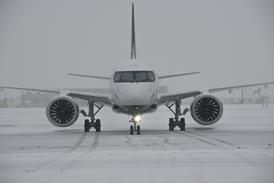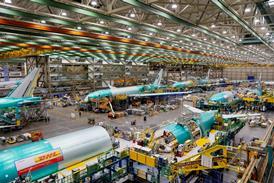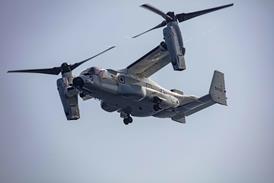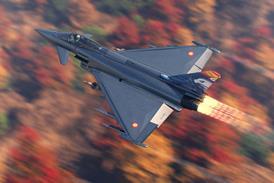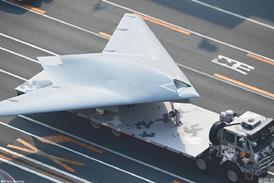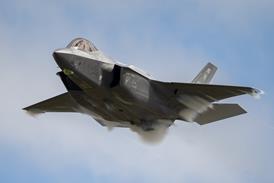British Aerospace's recent admission that it may be forced, however reluctantly, to consider vertical integration with GEC to maintain its position in the world defence market, speaks volumes about the uncertainties and risks which are now at play in the European defence aero- space industry.
The uncertainties largely centre on the upheavals taking place in France as the country forces through a wholesale and long- overdue restructuring of its aerospace assets. Little hard strategy can be made by anyone until the outcomes of the bidding in the Thomson-CSF privatisation and the pending merger between Aerospatiale and Dassault are known.
Add to that the negotiations now taking place over turning Airbus Industrie into an independent company, in which Aerospatiale's position is key, and the variables become almost unmanageable.
The risks, as BAe's comments reveal, are over the choices which the French Government may make take in forcing through the change. It has a unique opportunity to set the scene for a swift and orderly European re-organisation across national frontiers. That is an objective to which France has given its full public support, but the good intentions may yet fall prey to the temptation to rebuild a largely French national champion. At worst, that would force the UK and German industries to follow suit, leaving Europe no closer to cracking the problem of national boundaries. At best, it will add yet further delay to the process of consolidation which Europe can ill afford.
In the time that it has taken to get the Thomson privatisation under way - including the false start when Lagardère's winning bid was over-ruled by the French Government's own privatisation committee - the US industry has again raised the stakes with a further round of ground-breaking deals. Boeing's absorption of the Rockwell aerospace businesses and its pending acquisition of McDonnell Douglas will produce a defence and civil-aerospace giant with sales of around $48 million - more than Aerospatiale, BAe and Daimler-Benz Aerospace (Dasa)combined.
Raytheon's acquisition of the Texas Instruments defence businesses, and now Hughes, will create a defence-electronics group more than twice the size of its nearest European rival. Its $3.5 billion sales in missiles would dwarf the scale achieved in 1996 by the Matra BAe Dynamics merger.
The obvious response from Europe is to pull together their own assets to match this scale. Such a solution seemed tantalisingly close, with 1996's initial decision to put Thomson-CSF into the Lagardère-Matra fold. The move would have left Matra BAe Dynamics as the clear focus for European missiles consolidation. Dasa has dropped heavy hints that it is now prepared to throw in its loss-making missiles business, which has long been on the disposal list, with whoever emerges with the best chance of forming a single European giant.
Matra's links with GEC on space and its track record of forming such joint-ventures also seemed to augur well for the creation of a European solution on defence and civil systems to rival, or possibly even outstrip, the scale achieved by USrivals.
Now the Thomson bidding is open again, and Alcatel Alsthom, last time's loser, may increase its appeal this time round by pulling Aerospatiale and Dassault into the deal. Again, the aim would be to create a focus for European integration, but there are strings attached. Such a deal has its attractions for Aerospatiale, seeking to build up its bulk against the pending prospect of having to put around half of its existing operations into the new Airbus company.
Such a deal also holds some significant dangers, not least the prospect of muddying the waters with a second large missiles grouping. Worse still is the risk of the creation of a large, but unfocused, aerospace grouping which could leave Europe little closer to creating the sort of horizontal integration of platform manufacturers on the one hand and systems companies on the other, which the region desperately needs. If it succeeds in pushing other European players to take similar defensive action to build up bulk at the expense of industrial logic, it would be disastrous indeed.
Source: Flight International

